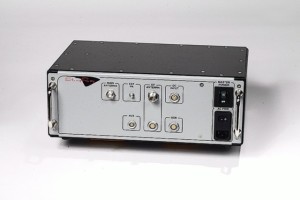Cell Phone Surveillance: All the ways “they’re” listening in…
… and why you should worry about it.
Once upon a time, there was the feel that a cellphone was “safer” to use than a normal phone. Slowly, we’ve all been going back to using “hardlines” for the calls that we need to ensure are safe from prying… ears, as it were. The main problem these days, is that cell phones are getting too smart for us. The amount of data that travels to and from cell phone base stations, towers and units is immense, and all of it can be used, in one way or another, to either identify you, your phone or locate you, or your phone. So we thought we’d go through some of the ways that we know the various governments around the world are tracing cellphones and their users – and not always the ones who’ve done anything to deserve that kind of scrutiny.
The StingRay
The StingRay is a secret. In fact, the US government is working hard to keeping it that way, even to the point of risking losing court cases so they don’t have to provide the courts with any information as to its inner workings. Despite that, as a symptom of our information age, we do know a few things about this insidious thing.

– The StingRay poses as a cellphone tower.
What does that matter? Well, it poses as a cellphone tower, but only to the one single device whoever uses it wants to track. Usually, a cellphone tower will ping, and ping back, all the devices in its area that wants to deal with it. That’s how your phone knows how many bars to put in your display, for example.
The information out there that has come from government sources says that they’re using these StingRays to locate phones and other wireless equipment. That also includes such things as Wi-Fi cards for laptops, etch – basically anything that connects to the mobile net to communicate.
So what’s the “but” here? Well… phones and those thingies don’t just communicate their location when they talk to a cellphone tower. So basically, anything your phone normally tells a cellphone tower, it will tell this thing if and when one is directed at it. The US government says that sometimes the use of this thing would require a warrant, and sometimes not. This is primarily a tactic to avoid having to show the courts how it works, but it also tells us that the information it gathers isn’t just about a phone’s location… it’s probably a lot more.
Just to add a little extra to that, this thing is small enough to be hand carried, or concealed in a car or van. Nice, huh?
Cell Tower Dump
This is another way that law enforcement tracks cell phones and cell phone users. Just like the StingRay, this doesn’t include only phones, mind you, but all devices that connect through the wireless net.
A cellphone tower dump involves extracting information from a cell phone tower about which phones, and thus people, who were in that tower’s range within a specific time period. In large cities, this number can be in the hundreds of thousands. This means that information on a lot of people that have nothing to do with the law enforcement inquiry will be included in the dump, effectively making it possible for law enforcement to track the location of hundreds of thousands – even millions, based on the number of such requests – innocent people.
A cell tower data dump includes tracking data from cell phones, location and subscriber information. This in turn makes it possible for law enforcement to obtain other data, such as diagnostics and communications such as emails and text (SMS) messages as well as push data (iMessage, for example).
What can you do?
In short, there’s nothing you can do to stop this from happening, save for using a satellite phone. Those are still a bit out of reach for the governments around the world, and most law enforcement would see it as highly unlikely that you’re using one of them, since the cost is prohibitive.
In the US, there are plans for stricter laws regarding when, how and what kind of information the telecom companies can hand over without warrants. As it stands, it’s either going to be an all warrant approach, where the need for a warrant is in effect at all times except for emergency situations, where life and limb are in immediate danger. The other is a court order/warrant trade-off, where the need for a warrant is weighted in each case.
Bottom line: Use a hard line, both for internet and for phone use, unless you want your information to be freely obtainable by law enforcement.
